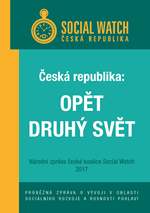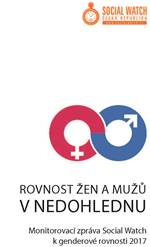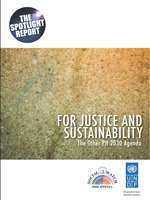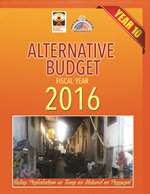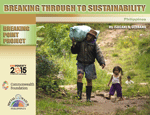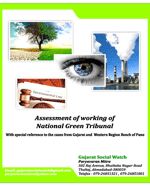Watcher's publications
| Published on Thu, 2017-09-21 00:00 |
Published on Fri, 2017-09-15 14:42
When the democratization process started, quarter of a century ago, the Czech Republic hoped to raise its social, environmental, economic and legal realities to “First World” standards. The Czech Social Watch coalition concluded in its alternative report to the United Nations that “we are back in the Second World”. The chapters on People, Planet, Prosperity, Peace and Justice and Partnerships provide evidence of an increasing gap between East and West in Europe. “Apart from indisputable internal responsibility, international cooperation has been lacking and it is not surprising that trust in the EU is decreasing in new member states”. The report complains about underrepresentation of Eastern Europe internationally and sees “ethnically motivated murders of Czech and Polish workers in Great Britain by neo-Nazis in connection with Brexit” as “only the tip of the iceberg”. |
Published on Wed, 2017-03-08 00:00
The report of the Social Watch concerning gender equality concerns itself with two of the most serious issues of today – firstly, the feminization of poverty (the status of single mothers and female pensioners) and secondly, the violence suffered by women and migrants. These two issues are also part of the list of the SDG (Sustainable Development Goals) – specifically, goal 1, ending poverty and goal 5, gender equality. |
Published on Wed, 2017-03-08 00:00
Czech women are two times more likely to fall into poverty than men. This gap is particularly pronounced among the elderly and single-parent families, notes the Czech branch of the Social Watch network in its report published on the occasion of the International Women's Day. In the Czech Republic, women are responsible for 87 per cent of single-parent families, with an estimated total number of 180,000. Nearly 20% of these families with one parent are at risk of poverty. Mothers without a spouse often have low incomes and are twice as likely to be unemployed than the national average. The Social Watch Coalition in Czech Republic launched the report on gender equality concerns itself with two of the most serious issues of today – firstly, the feminization of poverty (the status of single mothers and female pensioners) and secondly, the violence suffered by women and migrants. |
Published on Fri, 2016-07-01 00:00
“For Justice and Sustainability: The other PH 2030 Agenda” Introduction The Philippines will be free of poverty and will be well on the way to sustainability by 2030. No one will be left behind. That’s the promise, that’s what our government signed up to in 2015. This report, our report, entitled “FOR JUSTICE AND SUSTAINABILITY: The Other PH 2030 Agenda”, is about taking on our government on that promise. It is an attempt by Social Watch Philippines (SWP) to present its view of the stubborn Philippine development dilemma and how it may be overcome. Through this report we offer our support and cooperation in figuring out the sustainability problem and finding lasting solutions to the cyclical problems of high poverty, high inequality and continuing environmental degradation despite or because of economic growth. |
Published on Fri, 2016-05-06 12:33
It has been a decade since Social Watch Philippines (SWP) convened the Alternative Budget Initiative (ABI). The consortium has now blossomed to around one hundred and sixty strong civil society organizations and individuals conducting research and lobby efforts in coming out with annual budget analysis, campaigning against lump sum funds, and engaging the national government and the legislature in the budget process by coming out with a civil society-crafted alternative budget, otherwise called as the Orange Book. Throughout the years, the effort of the consortium to directly engage through the budget process has led to the forging of partnerships with concerned agencies and champion legislators, expansion of the ABI network to more organizations and individuals who share SWP and ABI’s development vision through budget advocacy, and the continuing presence of the ABI in House and Senate to present alternative budget proposals. |
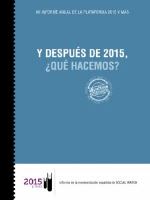
El informe anual de la plataforma 2015 y más ofrece una reflexión sobre la agenda global de desarrollo en un contexto marcado por el paso de la agenda de los objetivos de desarrollo del milenio a la nueva agenda de desarrollo 2030.
|
Published on Wed, 2014-07-02 17:33
Breaking Through to Sustainability By Isagani Serrano Social Watch Philippines, 2014. |
| Published on Fri, 2014-06-13 09:17 |
SUSCRIBE TO OUR NEWSLETTER


